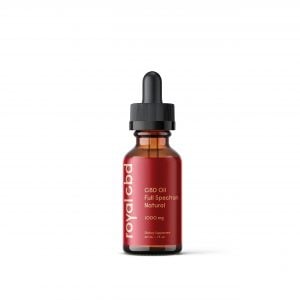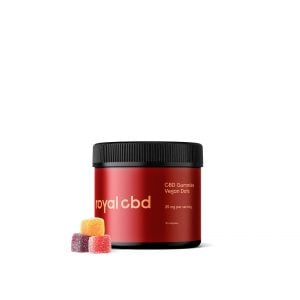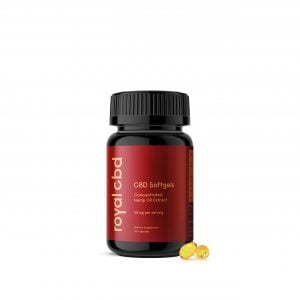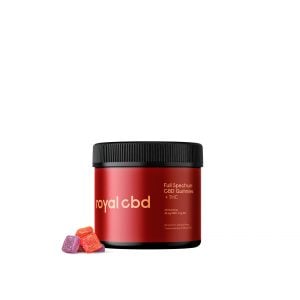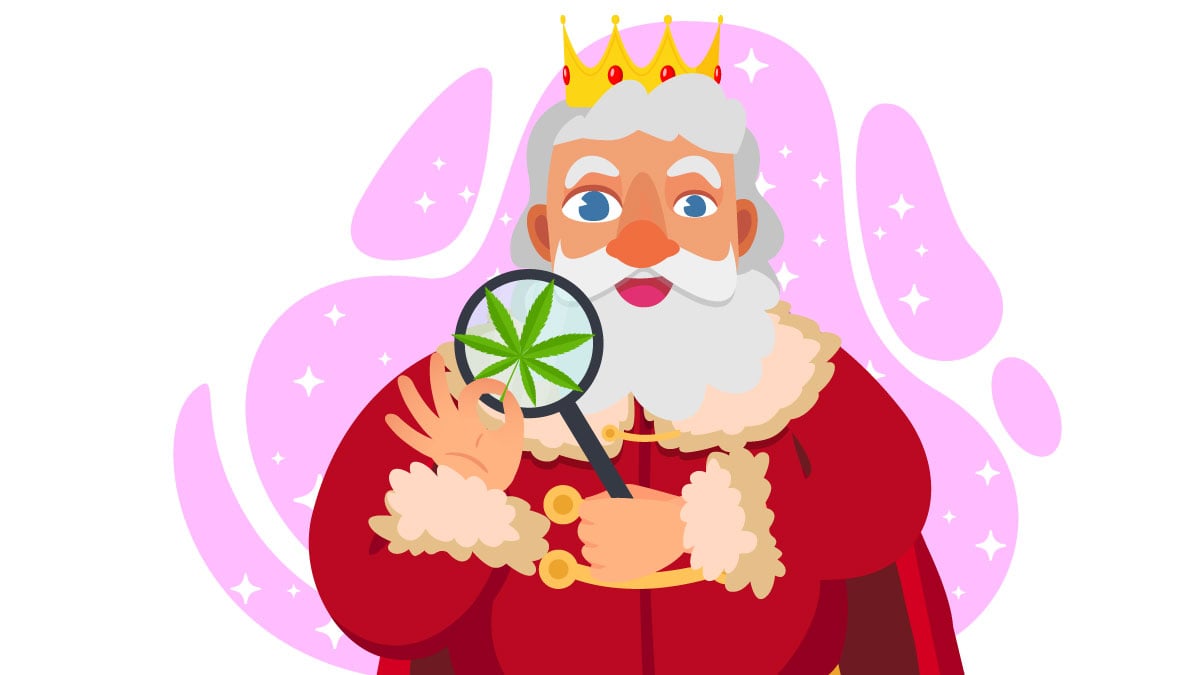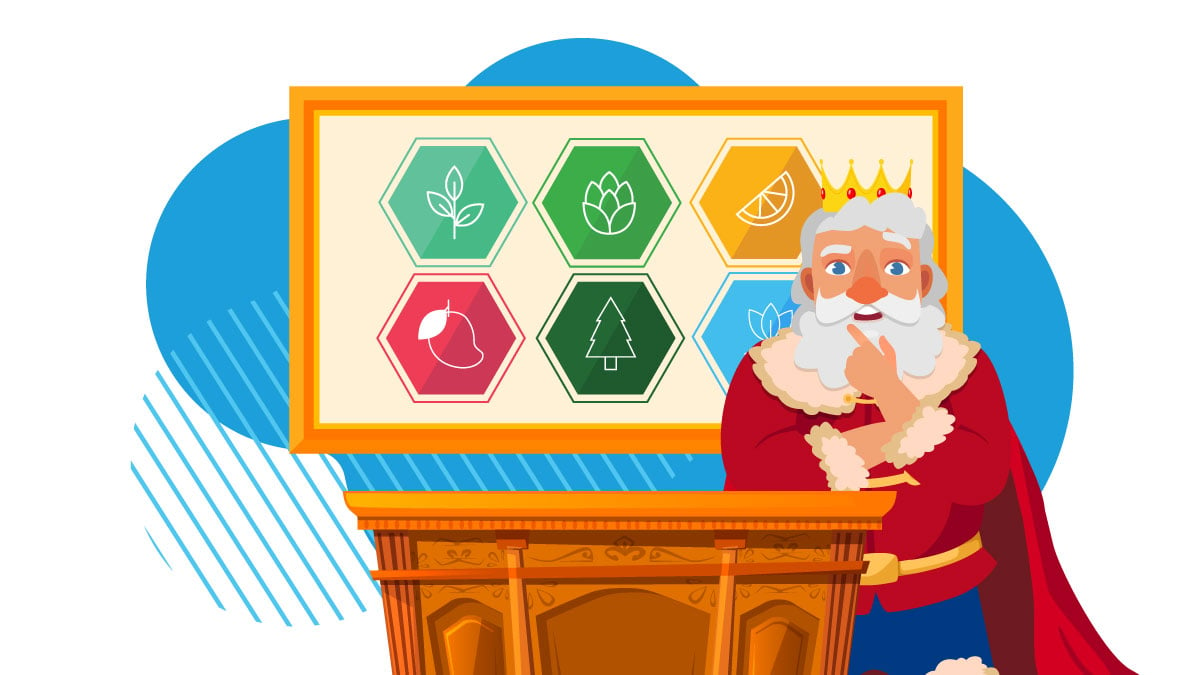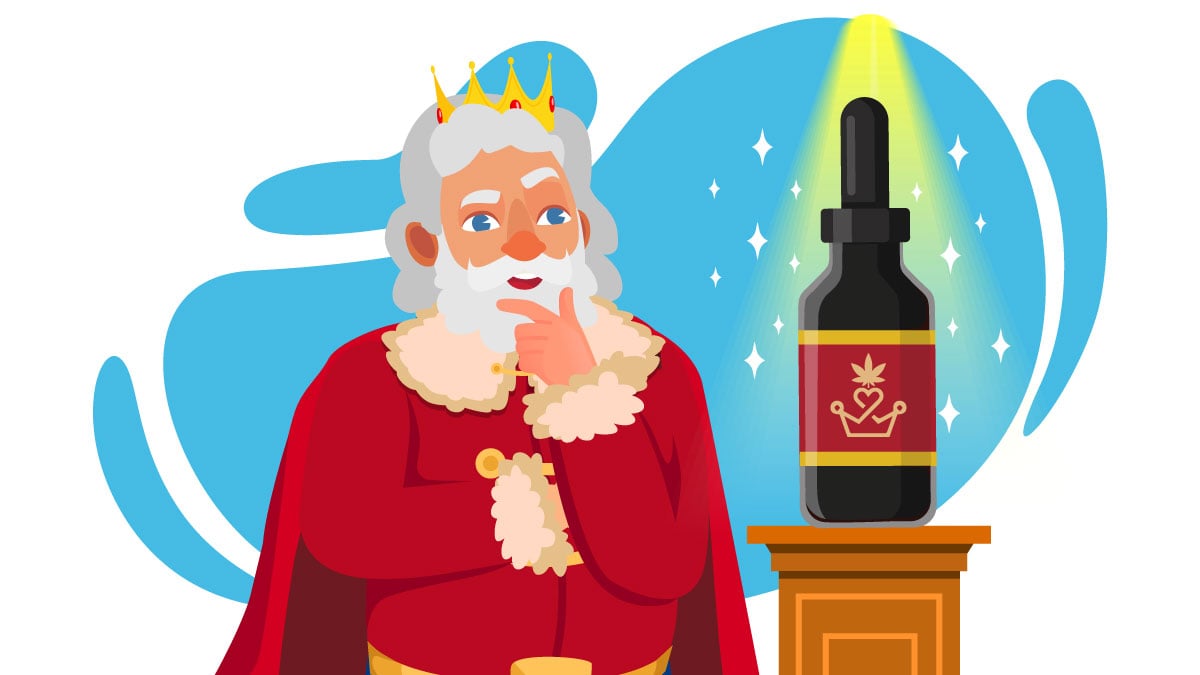CBD is an extremely versatile compound The list of its health benefits seems to have no end, and scientists continue to prove that every month with new studies pointing out to CBD as a potential aid in a variety of health problems.
Cannabidiol has taken the world of wellness by storm. Even if you don’t know a jack about cannabis, you’ve probably come across different CBD products in places like food stores, fitness studios, organic markets, and vape shops.
Media and news outlets have also hopped on the bandwagon, helping spread the word about its qualities.
Still, there are probably at least a few facts that you don’t know about CBD.
Cannabis has a long and complicated history in the world, but the last decade or so has changed the social perception of this plant, allowing us to expand our knowledge about cannabinoids.
Want to learn the truth about CBD?
At Royal CBD, we reveal 10 surprising CBD facts and more.
1. Cannabis Can Be Extracted from Hemp and Marijuana
There’s a lot of contradictory information on the internet about CBD. A common myth is that CBD can be extracted from only one type of cannabis. But in fact, CBD is found both in hemp and marijuana.
However, marijuana is naturally higher in THC and lower than CBD. In hemp, CBD dominates the plant’s chemical profile, and THC only occurs in trace amounts.
Why is this CBD fact so important among many others? Hemp’s naturally higher concentrations of CBD make it a perfect source for CBD extraction. Hemp strains also grow much faster than marijuana, require less care, and make for a more conscious and environmentally-friendly CBD product
However, not all hemp cultivars contain the same amounts of CBD. The strains used to produce CBD oil usually contain significantly higher levels of CBD than the plants used for fiber.
This doesn’t mean you can’t produce CBD oil from marijuana.
Which brings us to the next CBD fact.
2. Marijuana Can Yield High CBD Strains Too
Thanks to cross-breeding, marijuana growers can combine different cannabis strains to manipulate their cannabinoid content, providing various ratios of CBD to THC.
While most marijuana strains are high in THC, there are some cultivars that contain higher concentrations of CBD. Of course, these products aren’t available everywhere like hemp-derived CBD oil.
CBD products sourced from marijuana will still carry significant levels of THC, and while they may not produce the signature “marijuana high,” they are only legal in places that allow recreational marijuana use.
3. CBD is One of Over 100 Cannabinoids in the Cannabis Plants
There’s a good reason why CBD has garnered so much attention from cannabis users. It comes with a myriad of health benefits and has a very high safety profile, with no toxicity regardless of the consumed dose. But, did you know that there are over 100 cannabinoids that scientists have discovered in the cannabis plant?
And the number is still counting.
CBD is the second major cannabinoid along with THC. However, outside of these two well-researched molecules, there are dozens of more cannabinoids present in trace amounts. Like CBD, these cannabinoids engage with the body’s endocannabinoid system and can provide a range of their own benefits on top of enhancing the effects of CBD and THC.
Some of the more well-known phytocannabinoids – phyto meaning “plant-derived” — that are found in cannabis plants include:
- CBC (cannabichromene)
- CBN (cannabinol)
- CBG (cannabigerol)
- THCV (tetrahydrocannabivarin)
- CBDV (cannabidivarin)
- Delta8-THC (delta-8-tetrahydrocannabinol)
- THCA (tetrahydrocannabinolic acids)
Despite the abundance of those identified cannabinoids, researchers have primarily focused their attention on examining the properties of CBD and THC. Many studies have pointed to CBD as an effective alternative to conventional solutions in easing a wide range of health problems.
4. CBD Is Psychoactive… But It’s Non-Intoxicating
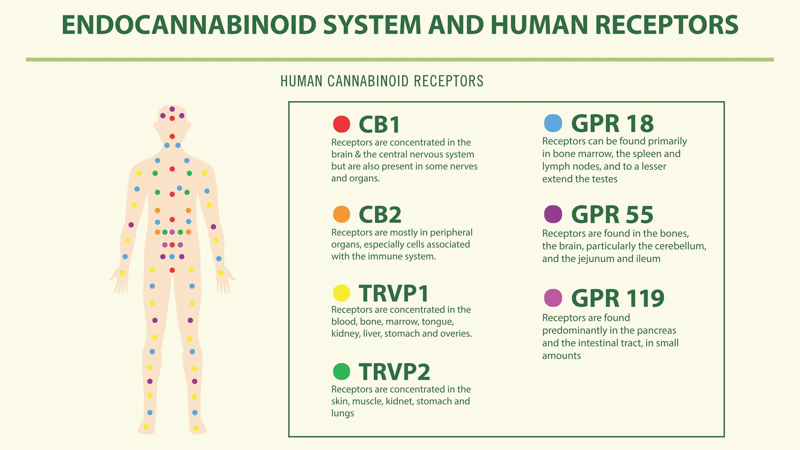
Speaking of CBD facts, there’s one “fact” that requires immediate correction. People regularly talk about CBD as a “non-psychoactive” compound. Everywhere you see CBD mentioned, it’s labeled as “non-psychoactive.”
What people actually mean when they talk about CBD in this way is that it doesn’t induce temporary euphoric effects. This means that CBD is non-intoxicating. It has been extensively studied in that matter and the general consensus is that CBD is non-intoxicating. CBD oil is safe for people of different ages, including children and seniors.
While it’s true that CBD won’t get you “high” or “stoned” it’s incorrect to say it’s non-psychoactive. The definition of “non-psychoactive” means that a particular substance doesn’t affect the mind, which is anything but true when it comes to CBD.
In fact, CBD has demonstrated influence on the endocannabinoid system, the body’s prime regulatory network. The interaction between CBD and the endocannabinoid system regulates important biological processes, such as our response to fear and stress triggers.
In other words, CBD alters the release of neurotransmitters in the brain, so it actually IS psychoactive.
The most important CBD fact for today: CBD is non-intoxicating and won’t cause impairment, but it does affect the mind.
5. Your Body Doesn’t Care Where CBD Comes From
CBD is CBD regardless of its source. Some cannabis consumers mistakenly think that CBD from hemp is somehow less potent than CBD sourced from marijuana. The truth is that CBD from hemp is the same as CBD from marijuana on a molecular level.
According to Franjo Groten, a member of the International Association of Cannabinoid Medicines, our bodies don’t care where CBD comes from.
Vitamin C is a good analogy. Your body absorbs it through an orange or parsley, but on a molecular level, this is the same vitamin C.
While it’s true that the amount of CBD in hemp by dry weight is generally lower than the level of CBD in some selectively bred marijuana plants, but once the oil is extracted, the difference isn’t that big any longer.
Whether it’s hemp-derived or marijuana-derived CBD oil, CBD is CBD — that’s a fact!
6. CBD May Help Balance Cannabinoid Deficiency
Cannabinoid researchers have proposed a theory, according to which supplementation with plant-based cannabinoids like CBD could possibly help individuals manage nutritional deficiencies.
This theory, known as the clinical endocannabinoid deficiency syndrome (CECD), would explain why the endocannabinoid system sometimes fails to properly keep the body in balance. It assumes that a deficiency in endocannabinoids (those produced by the body), can lead to a dysfunction in the endocannabinoid system and, as a result, trigger a variety of medical conditions. The concept was initially proposed by Dr. Ethan Budd Russo.
Since cannabis prohibition, Americans may be more susceptible to cannabinoid deficiencies. Eliminating hemp from the diet may also have contributed to this problem.
As the above theory suggests, adding CBD oil to your diet could bolster the body’s endocannabinoid system by signaling it to produce more of its native cannabinoids and thus level out deficiency issues.
7. CBD Works Better with Other Phytonutrients from Hemp
Another surprising CBD fact: taking CBD alone isn’t the best idea if you want to maximize its potential. Researchers have found that taking CBD together with other natural compounds found in cannabis may enhance its effects.
The entourage effect, first proposed in 1998 by world-class researchers Raphael Mechoulam and S. Ben-Shabat, suggests that all chemical compounds in cannabis — including cannabinoids, terpenes, and other phytochemicals — act synergistically to produce a more potent effect.
Simply put, these scientists and other experts believe that full-spectrum CBD oil offers greater health benefits than products based on isolated compounds.
While CBD on its own has shown powerful benefits, the entourage effect could mean that CBD’s natural properties can be maximized while consumed with other molecules found in cannabis.
8. Even Healthy People May Benefit from CBD
Most stories with CBD begin with a person facing health problems, but CBD offers natural properties that are beneficial for anyone interested in supporting wellness in a safe way.
CBD’s relationship with the endocannabinoid system may help it maintain balance and prevent the aforementioned endocannabinoid deficiencies.
Hemp-derived CBD oil can also contribute to a healthy diet. One of the most interesting CBD oil facts is how many valuable compounds it contains aside from CBD. CBD oil is also a decent source of many vitamins, including B complex vitamins, vitamin C, and vitamin E; it contains trace minerals such as calcium and magnesium on top of essential fatty acids, protein, and other dietary nutrients needed to keep your body in a good shape.
For healthy people, taking CBD oil means supporting the endocannabinoid system, the major self-regulatory network. This way, they can maintain optimal health. The balancing properties of CBD combined with the nutritional content of MCT oil in Royal CBD products will help ensure your body receives everything it needs to work at its peak each day.
9. CBD Can Help Your Pet
This CBD fact is not only surprising but can also change your pet’s life. What does CBD do for our pets? Virtually the same it does for humans. All animals, including dogs, cats, rabbits, horses, and more, have an endocannabinoid system, meaning they’re somewhat hardwired for cannabinoids.
Pet owners are discovering the natural benefits of CBD oil for pets as a safe alternative to promote their well being. CBD’s interaction with the endocannabinoid system has shown to support pets’ healthy joints, neurological health, cardiovascular function, and emotional behavior. Moreover, many pet owners decide to use hemp CBD oil’s nutritional profile to complement the dietary needs of their four-legged friends.
10. Hemp-Derived CBD is Federally Legal
Although a Ninth Circuit Court of Appeals ruling had allowed farmers and manufacturers to grow and process hemp for years without disruption, the introduction of the 2018 Farm Bill in late December clarified any confusion about the legal status of hemp-derived CBD.
The hemp resolution in the new Farm Bill allows hemp to be legally grown for any use, including the production and extraction of CBD. This also means you can legally buy CBD oil without prescription. CBD products are widely available online and over the counter in local stores.
This CBD fact is particularly important for those curious about cannabinoids because it draws a thick line between hemp-derived and marijuana-derived CBD products. While marijuana is legal for recreational use only in 11 states, hemp is legal all across the US. You can even fly with CBD hemp oil as long as it contains 0.3% THC or less.
When it comes to buying CBD oil, we always recommend that you look for a reliable online store. While shopping CBD locally sounds like a convenient option, products found in-store are often mislabelled due to the lack of regulations in the CBD industry. CBD oils sold in physical stores are also more expensive because running a physical storefront requires extra operational costs.
At Royal CBD, we use in-house manufacturing to make sure we have total control over the quality of our products. The entire Royal CBD line is made from organic, non-GMO hemp, extracted with CO2, and lab-tested for potency and purity in a certified laboratory. We also strive to make our premium extracts affordable for everyone, offering regular discounts and a special Royalty Program for returning customers. With Royal CBD, each order earns you special crowns that you can spend on your next purchase and save more money on your favorite products.
Other Surprising Facts About CBD and Hemp
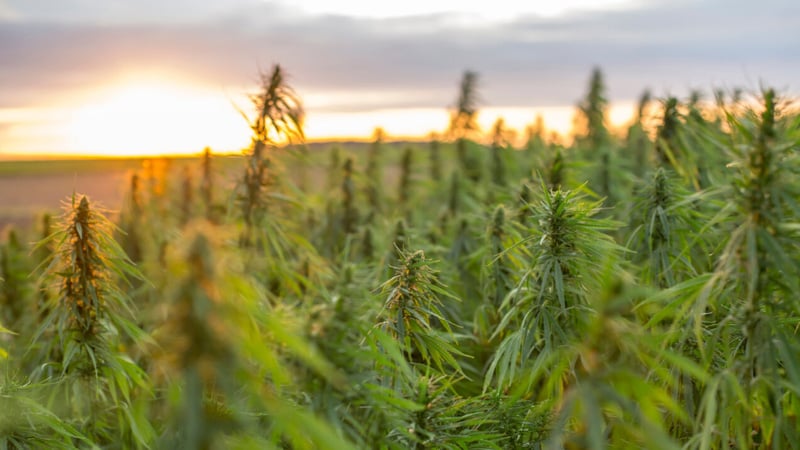
- Royal families have used CBD. According to historical records, Queen Victoria, who ruled England from 1837 to her death in 1901, used cannabis high in CBD to help with menstrual cramps. Cannabis has a long history as a natural pain reliever.
- Hemp is one of the oldest agricultural crops: archeologists discovered traces of hemp dating back as far as 12,000 years ago. The late astronomer and cannabis advocate, Carl Sagan, proposed in 1997 that hemp may have been the first agricultural crop used by humans, although this is yet to be finally confirmed.
- Medical cannabis was prescribed in ancient Greece: A Greek doctor Claudius Galen often prescribed cannabis juice as a remedy for pain — a classic example of CBD’s analgesic properties. Pedanius Dioscorides also mentioned these effects in his documents around 65-70 CE, stating that “being juiced when it is green is good for the pains of the ears.”
- Imported CBD oil is illegal in Canada without prescription: In order for CBD oil to be legal, it must be produced inside of Canada and purchased from Canadian distributors. While most companies will mail CBD products to Canada, there’s a small chance that the customs will either send them back or destroy them.
- CBD may reverse brain damage from alcohol: A study conducted by the University of Kentucky has found that administering CBD resulted in a 48.8% reduction in neurodegeneration, showing promising results for those trying to recover from alcohol addiction or withdrawals and improve their cognitive performance.
- CBD might support recovery from addiction: CBD has been proposed by scientists as an inhibitor to control addictive behaviors. In a study published in the U.S. National Library of Medicine, researchers have found that CBD is an agonist of 5-HT1a serotoninergic receptors and can regulate compulsive behaviors as well as improve stress response. Serotonin receptors take part in regulating drug-seeking behaviors; they can also dampen stress reactions that cause these people to relapse.
Surprised by These CBD Facts? There Is More to Come
A paradox about cannabis is that the cannabinoids are some of the best-researched compounds, both scientifically and historically. People have been using cannabis as a medicine for over 5,000 years, but after the cannabis prohibition and over 70 years of misinformation from different sources, it seems that we have to rediscover the plant and bring it back to where it belongs — to the people.
Our list of surprising CBD facts is by no means complete. There is always more to learn about cannabidiol and how it can help you promote wellness by regulating the body’s homeostasis through the endocannabinoid system.
If you want to expand your knowledge on CBD, keep doing your research and make sure to check out all the other articles about CBD oil we have written at Royal CBD.
